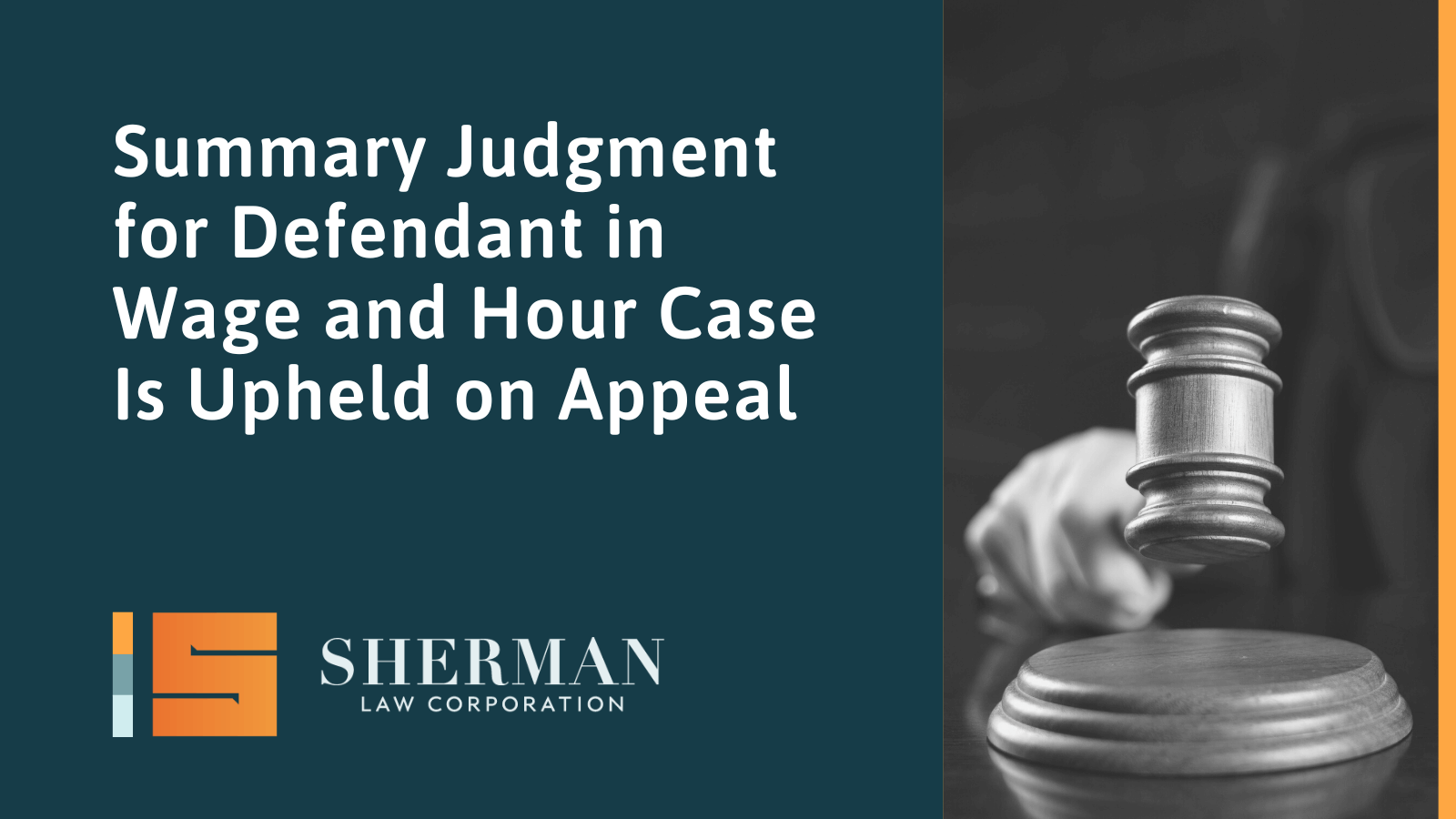
After being terminated for economic reasons by employer The Ticket Clinic, traffic ticket defense attorney, Luis Valdivia, filed a lawsuit against his former employer asserting five causes of action:
- Wrongful termination in violation of public policy
- Failure to furnish timely and accurate wage statements
- Failure to make payment within required time
- Unfair competition
- Breach of oral contract
Valdivia dismissed the first cause of action after his deposition because he had no evidence to support this claim. Defendant’s counsel, Sherman Law Corporation, filed a Motion for Summary Judgment seeking to dismiss the rest of the lawsuit. The trial court granted the motion and dismissed the lawsuit on January 8, 2021.
On January 27, 2021, Valdivia appealed asserting that the trial court’s judgment was flawed. Following briefing and oral argument, he Appellate court concluded that Valdivia had not argued successfully to overturn the trial court’s rulings on any of the four remaining causes of action and affirmed dismissal of the lawsuit.
Failure to Furnish Timely and Accurate Wage Statements
Valdivia argued that the defendant’s use of an online payroll system violated Labor Code section 226 that requires employers to furnish an “accurate itemized statement in writing” along with the paycheck. The Appellate court held that an electronic payroll system that provided itemized wage statements digitally and could provide paper statements upon request did not violate the statute.
Valdivia also alleged that the lack of an itemized wage statement that should have accompanied his final paycheck constituted a violation of Labor Code section 226. The defendant, however, demonstrated to the court’s satisfaction that this was an isolated error rather than a “knowing and intentional failure by an employer.” The Appellate court agreed with the lower court because Valdivia failed to provide any evidence proving otherwise.
Failure to Make Payment within Required Time
In the complaint, Valdivia alleged that the Ticket Clinic CEO verbally promised to pay him two weeks’ salary upon termination. Valdivia argued that this severance payment—which the defendant refused to pay—was wages due and owing to him.
The Appellate court agreed with the trial court which found the severance payment was a gift rather than wages and there was no legal duty to pay it to Valdivia.
Unfair Competition
Valdivia alleged that the defendant engaged in unfair competition by failing to pay him owed wages, but the Appellate court agreed with the trial court, which determined that Valdivia had failed to prove his predicate claims that wages were owed to him or that the defendant violated Labor Code section 226.
Breach of Oral Contract
The trial court found that no oral contract was created because there was no consideration for the payment, and the appellate court agreed with this ruling.
Sherman Law Corporation took over defense of this case from Littler Mendelsohn in 2017, and successfully litigated it to conclusion.




